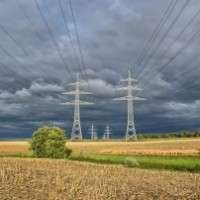Can Western Australia get smart on energy use?

A Murdoch University researcher has examined the benefits and challenges of adopting Smart Meters in Western Australia as the state's peak energy use continues to rise.
Dr Samuel Gyamfi from the School of Engineering and Information Technology said this upward trend would have economic, social and environmental consequences for the state unless steps were taken to moderate energy consumption.
He said data on Smart Meter use in other cities revealed they were an effective way to achieve energy reduction by households, but that relying on pricing alone to modify consumption behaviour was not enough.
"Smart Meters are effective in conveying real-time information about the state of the grid and can inform efficient use of energy for residential homes. But expecting households to reduce their use with pricing signals is not enough, as roughly 40 per cent of households don't respond to cost," Dr Gyamfi said.
"To realise optimal energy savings, especially during peak times, the social, environmental and long-term economic benefits of reducing energy demand have to be communicated to consumers."
Dr Gyamfi said this messaging was needed in WA, citing data which showed a clearly increasing trend in peak energy use, which would have consequences in the growing state if left unaddressed.
"Environmentally, high demand during peak times is typically accommodated through more carbon-intensive forms of production, including diesel generation. There is a direct relationship between peak demand and environmental emissions in nearly all power supply networks," Dr Gyamfi said.
"In terms of energy security, grid failure could become an issue, especially with a rapidly expanding population. Data from the public campaign following California's energy crisis in 2001 shows that consumers do respond when informed about how their usage affects grid stability.
"From a long-term economic perspective, infrastructure cannot be expanded indefinitely, which means major investment at some point."
At the same time, Dr Gyamfi said the cost of installing Smart Meters stood to be very high, and how they would be financed and by whom would be a political issue.
As for supplementing the grid, he said that while the state and federal solar rebate schemes had a flattening effect on the rise in peak energy use in WA in 2010 and 2011, solar power in residential homes could not solve the problem.
"Solar power is positive for energy security in WA, but peak usage generally falls between five and seven pm, which is when people are returning home to cook and turn on lights and appliances such as air conditioners.
"Unfortunately, this isn't the optimal time for solar energy production."
'Residential peak electricity demand response – Highlights of some behavioural issues' involved Murdoch University and the University of Canterbury (NZ) and can be found here.
Provided by Murdoch University


















